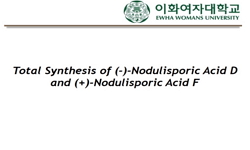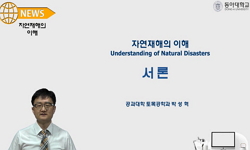본 논문은 한국과 남아메리카 구비설화 중 자연재난을 소재로 한 자료만을 대상으로 하여, 자연재난을 구비설화에서 어떻게 포착하고 있으며, 그러한 포착의 이면에 숨겨져 있는 자연재난 ...
http://chineseinput.net/에서 pinyin(병음)방식으로 중국어를 변환할 수 있습니다.
변환된 중국어를 복사하여 사용하시면 됩니다.
- 中文 을 입력하시려면 zhongwen을 입력하시고 space를누르시면됩니다.
- 北京 을 입력하시려면 beijing을 입력하시고 space를 누르시면 됩니다.

한국과 남아메리카 구비설화에 나타난 자연재난 인식의 메커니즘 = Mechanism of Recognition of Natural Disasters Presented in Korean and South American Folk Literature
한글로보기https://www.riss.kr/link?id=A103237786
- 저자
- 발행기관
- 학술지명
- 권호사항
-
발행연도
2017
-
작성언어
Korean
- 주제어
-
등재정보
KCI등재
-
자료형태
학술저널
- 발행기관 URL
-
수록면
135-183(49쪽)
-
KCI 피인용횟수
4
- DOI식별코드
- 제공처
-
0
상세조회 -
0
다운로드
부가정보
국문 초록 (Abstract)
본 논문은 한국과 남아메리카 구비설화 중 자연재난을 소재로 한 자료만을 대상으로 하여, 자연재난을 구비설화에서 어떻게 포착하고 있으며, 그러한 포착의 이면에 숨겨져 있는 자연재난 인식의 메커니즘은 무엇인지를 중점적으로 살펴보고자 한 것이다. 비교 연구의 결과를 크게 세 가지로 정리해 본다. 첫째, 한국과 남아메리카의 구비설화에서 자연재난은 `신성한 힘의 작용`과 무관하지 않다. 둘째, 한국과 남아메리카 구비설화에서 자연재난은 `재난 디스토피아`로 귀결되기보다는 대부분 `재난 유토피아`로 귀결된다. 이는 자연재난을 비극적으로 받아들이지 않기 위한 인식의 전환에 해당하며, 그 구체적 내용은 `공생`과 `갱신`으로 나타나고 있다. 이것을 본 논문에서는 `자연재난 인식의 메커니즘`으로 규정하였다. 셋째, 공생은 자연 질서에의 순응과, 갱신은 자연 질서에의 저항과 관련이 있다. 즉 자연재난을 맞닥뜨린 상황에서 인간은 그 자연재난의 발생에 내재되어 있는 자연 질서에 순응함으로써 인간 및 자연세계를 유지하고자 하는 한편, 자연 질서에 순응하기보다는 인간의 입장에서 그것을 조정하여 인간 문명 및 세계를 유지하려고 한다든지, 자연재난 후 인간 세계를 새롭게 만들어보려고 하는 자세, 즉 갱신의 자세를 취하기도 한다. 이 중 한국의 자료가 후자의 원리를 더 구현하고 있다면, 남아메리카의 자료는 전자의 원리를 더 구현하고 있다. 재난 유토피아라는 메커니즘이 공통적으로 확인되지만, 그 구체적 작동 원리는 순응과 갱신의 어느 한 쪽으로 다소 치우쳐 발현되고 있는 것이다. 이상을 통해 자연재난을 다루고 있는 구비설화는 `재난 유토피아`라는 인식의 메커니즘을 얘기하려고 한다는 점, 그 메커니즘은 자연 질서에의 순응과 자연 질서에의 저항을 통한 갱신을 구체적 작동 원리로서 삼고 있다는 점, 그러나 경우에 따라서는 그 작동원리가 다소 편중되어 발현될 수도 있다는 점(이것은 한국의 자료에 자연재난을 매개로 인간의 이득을 취하고려고 하는 점, 남아메리카의 자료에 인간 세계와 자연 세계를 갱신되어야 할 하나의 세계로 얘기하고 있다는 점 등과 관련된다.) 등을 파악할 수 있다.
다국어 초록 (Multilingual Abstract)
In this paper about the folk literature of Korea and South America, we focus only on materials based on natural disasters, regarding specifically how they cognize natural disasters, and the mechanism of natural disaster hidden in the recognition. The ...
In this paper about the folk literature of Korea and South America, we focus only on materials based on natural disasters, regarding specifically how they cognize natural disasters, and the mechanism of natural disaster hidden in the recognition. The results of this comparative study will be summarized in three main categories: firstly, natural disasters in Korean and South American tales are related to `the function of divine power`. Secondly, natural disasters in Korean and South America are often referred to as “disaster utopia” rather than “disaster dystopia.” This corresponds to a shift in awareness of not accepting tragic natural disasters, and the concrete contents are expressed as “symbiosis” and “renewal.” In this paper, I have defined "a mechanism for recognizing natural disasters." Thirdly, symbiosis is related to natural order, and renewal is related to resistance to natural order. In other words, in a situation where a natural disaster is being faced, people attempt to maintain the human and natural world by adapting to the natural order inherent in the occurrence of the natural disaster, or adopt an attitude of renewing the human world after a natural disaster has occurred, that is, an attitude of renewal. If the data from Korea further embodies the latter principle, the South American material implements the former principle. The mechanisms of disaster utopia are commonly identified, but their specific working principles are somewhat biased towards adaptation and renewal. The well-known narrative dealing with natural disasters is intended to describe the mechanism of the perception of “utopia of disaster,” and its mechanism is to adapt to natural order and to renew through resistance to natural order as a concrete working principle. However, in some cases it can be understood that the working principle may be expressed in a somewhat biased manner, for it is said that Korea tried to take advantage of human beings through natural disasters, as a medium of material disaster, and South America are recognized the human world and the natural world as a world to be renewed.
참고문헌 (Reference)
1 심치열, "홍수 이야기에 나타난 신화적 의미지향 연구 : 한국과 인도를 중심으로" 한국외국어대학교 남아시아연구소 6 : 2001
2 최래옥, "한국홍수설화의 변이양상" 한국민속학회 12 : 1980
3 이주영, "한국홍수설화에 나타난 신과 인간의 대립담론" 한국민속학회 53 : 143-172, 2011
4 김헌선, "한국의 창세신화" 길벗 1994
5 손진태, "한국민족설화의 연구" 을유문화사 1982
6 "한국구비문학대계 85권" 정신문화연구원 1982
7 김헌선, "한국 홍수설화의 위상과 비교설화학적 의미" 국립민속박물관 (31) : 109-133, 2012
8 조현설, "한국 창세신화에 나타난 인간의 문제" 강남대학교 인문과학연구소 11 : 2002
9 최원오, "창세신화에 나타난 신화적 사유의 재현과 변주―창세, 홍수, 문화의 신화적 연관성을 통해―" 한국어교육학회 (111) : 17-480, 2003
10 정재호, "백두산 설화 연구" 고려대학교 민족문화연구소 1992
1 심치열, "홍수 이야기에 나타난 신화적 의미지향 연구 : 한국과 인도를 중심으로" 한국외국어대학교 남아시아연구소 6 : 2001
2 최래옥, "한국홍수설화의 변이양상" 한국민속학회 12 : 1980
3 이주영, "한국홍수설화에 나타난 신과 인간의 대립담론" 한국민속학회 53 : 143-172, 2011
4 김헌선, "한국의 창세신화" 길벗 1994
5 손진태, "한국민족설화의 연구" 을유문화사 1982
6 "한국구비문학대계 85권" 정신문화연구원 1982
7 김헌선, "한국 홍수설화의 위상과 비교설화학적 의미" 국립민속박물관 (31) : 109-133, 2012
8 조현설, "한국 창세신화에 나타난 인간의 문제" 강남대학교 인문과학연구소 11 : 2002
9 최원오, "창세신화에 나타난 신화적 사유의 재현과 변주―창세, 홍수, 문화의 신화적 연관성을 통해―" 한국어교육학회 (111) : 17-480, 2003
10 정재호, "백두산 설화 연구" 고려대학교 민족문화연구소 1992
11 조현설, "동아시아 홍수신화 비교 연구 -신・자연・인간의 관계에 대한 인식을 중심으로-" 한국구비문학회 (16) : 461-496, 2003
12 김재용, "동북아시아 지역 홍수신화와 그 변이에 대한 연구" 한국고전연구학회 4 : 1998
13 "Folk Literature of the Yaruro Indians"
14 "Folk Literature of the Yanomami Indians"
15 "Folk Literature of the Yamana Indians"
16 "Folk Literature of the Warao Indians"
17 "Folk Literature of the Toba Indians 2"
18 "Folk Literature of the Toba Indians 1"
19 "Folk Literature of the Tehuelche Indians"
20 "Folk Literature of the Sikuani Indians"
21 "Folk Literature of the Selknam Indians"
22 "Folk Literature of the Nivakle Indians"
23 "Folk Literature of the Mocovi Indians"
24 "Folk Literature of the Mataco Indians"
25 "Folk Literature of the Makka Indians"
26 "Folk Literature of the Guajiro Indians 2"
27 "Folk Literature of the Guajiro Indians 1"
28 "Folk Literature of the Ge Indians 2"
29 "Folk Literature of the Ge Indians 1"
30 "Folk Literature of the Cuiva Indians"
31 "Folk Literature of the Chorote Indians"
32 "Folk Literature of the Chamacoco Indians"
33 "Folk Literature of the Caduveo Indians"
34 "Folk Literature of the Bororo Indians"
35 "Folk Literature of the Ayoreo Indians"
36 Johannes Wilbert, "Folk Literature of South American Indians" UCLA Latin American Center Publications, University of California
37 권태효, "<돌부처 눈붉어지면 침몰하는 마을>담의 홍수설화적 성격과 위상" 한국구비문학회 6 : 1998
동일학술지(권/호) 다른 논문
-
생태인문학을 활용한 자기서사 치유 및 평생교육의 가능성 -실버 인문학 강독모임을 중심으로-
- 한국문학치료학회
- 이명희 ( Yi Myoung-hee )
- 2017
- KCI등재
-
청소년 시에 나타난 심리적 문제와 문학교육의 방향 -학교 폭력 문제를 중심으로-
- 한국문학치료학회
- 김남희 ( Kim Nam Hee )
- 2017
- KCI등재
-
문학치료를 통한 초등학생 통일교육 사례 연구 - 극본 <들판에서>의 감상과 창작 활동을 중심으로 -
- 한국문학치료학회
- 남경우 ( Nam Kyoung-woo )
- 2017
- KCI등재
-
간략식 자기서사와 정서반응형 자기서사 진단도구의 상관관계 연구
- 한국문학치료학회
- 하은하 ( Ha Eun-ha )
- 2017
- KCI등재
분석정보
인용정보 인용지수 설명보기
학술지 이력
| 연월일 | 이력구분 | 이력상세 | 등재구분 |
|---|---|---|---|
| 2028 | 평가예정 | 재인증평가 신청대상 (재인증) | |
| 2022-01-01 | 평가 | 등재학술지 유지 (재인증) |  |
| 2019-01-01 | 평가 | 등재학술지 유지 (계속평가) |  |
| 2016-01-01 | 평가 | 등재학술지 유지 (계속평가) |  |
| 2012-01-01 | 평가 | 등재학술지 선정 (등재후보2차) |  |
| 2011-01-01 | 평가 | 등재후보 1차 PASS (등재후보1차) |  |
| 2010-01-01 | 평가 | 등재후보 1차 FAIL (등재후보1차) |  |
| 2008-01-01 | 평가 | 등재후보학술지 선정 (신규평가) |  |
학술지 인용정보
| 기준연도 | WOS-KCI 통합IF(2년) | KCIF(2년) | KCIF(3년) |
|---|---|---|---|
| 2016 | 0.48 | 0.48 | 0.57 |
| KCIF(4년) | KCIF(5년) | 중심성지수(3년) | 즉시성지수 |
| 0.6 | 0.61 | 1.231 | 0.3 |





 KCI
KCI KISS
KISS





